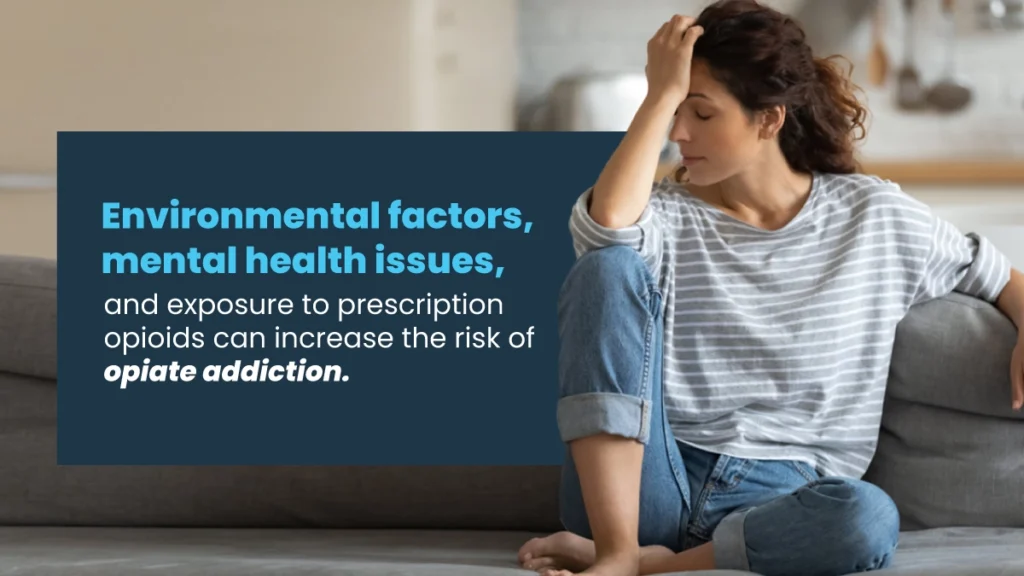Signs of Opioid Addiction: Clues in the Dark
From prescription painkillers to illicit drugs like heroin, opioids have been responsible for a surge in addiction and overdoses.
Spotting an opioid addiction involves recognizing physical signs, as well as addressing mood swings and secrecy. Familiarity with these indicators can facilitate early intervention and support.
We will dissect the physical, behavioral, and psychological cues that may reveal the presence of opioid addiction, ultimately saving lives and offering a path toward recovery.

Key Takeaways
Opioids, including prescription painkillers and illegal drugs like heroin, have caused a surge in addiction and overdoses. Information that you need to know:
- It is crucial to recognize the signs of opioid addiction, such as changes in behavior and drug abuse, for timely intervention.
- Physicians may use methadone to treat opioid addiction, as it offers similar effects to morphine with fewer side effects, emphasizing the importance of medical supervision.
The Haven Detox-Little Rock offers comprehensive support and treatment for those dealing with opioid addiction. Call us at (501) 271-3342 for more information.
Opioid Addiction Rates in Arkansas
Arkansas, like many other states in the U.S., has been grappling with the opioid crisis. According to recent statistics, Arkansas has not been immune to the problem, with a significant portion of its population affected by opioid addiction. In 2018, the state recorded 114 opioid-related overdose deaths, indicating the extent of the crisis within the region.
Understanding Opioid Addiction
It is crucial to understand the factors that contribute to its development to identify and address opioid addiction. It begins with an awareness of how opioids affect the brain, the risk factors that make some individuals more susceptible, and the progression of addiction.
The Brain and Opioid Addiction
Opioids are a class of drugs that possess prescription painkillers like OxyContin, Vicodin, or other illicit substances such as heroin. When these substances are introduced into the body, they interact with the brain’s natural opioid receptors, leading to feelings of euphoria and pain relief. Over time, however, the brain becomes accustomed to these artificial opioids, resulting in a reduced ability to experience pleasure without them. This phenomenon is known as tolerance and is a hallmark of opioid addiction.
Risk Factors for Opioid Addiction
Not everyone who uses opioids will become addicted, but certain risk factors can extend the probability of developing an addiction. These risk factors include a personal or family history of substance abuse, a history of trauma or emotional distress, and easy access to prescription opioids. Learning these risk factors can help people and their loved ones be more vigilant and proactive in addressing potential addiction issues.
Development of Opioid Addiction
Opioid addiction often follows a predictable pattern. It typically starts with the legitimate use of prescription opioids for pain management, but as tolerance develops, individuals may start taking larger doses or using them for non-medical reasons. This misuse can quickly lead to dependence and addiction. The process of transitioning from opioid use to addiction can be rapid, making early detection crucial.
Signs of an Opioid Addiction
Spotting opioid addiction signs is crucial for early intervention and support. These signs can be categorized into three main groups: physical, behavioral, and psychological.
Physical Signs
Physical signs of opioid addiction can manifest in various ways:
- Drowsiness and Confusion: Opioid use often results in noticeable drowsiness and confusion in individuals.
- Slurred Speech: The slurring of speech may indicate opioid use.
- Constricted Pupils: Opioids can cause pupils to appear significantly smaller than usual.
- Frequent Nausea or Vomiting: Opioid use can lead to frequent bouts of nausea and vomiting.
- Constipation: Opioid-induced constipation is a common physical symptom of opioid addiction.
These physical indicators can be vital in identifying opioid addiction and seeking help.
Behavioral Signs
Behavioral signs of opioid addiction can be telling, as they reveal how addiction impacts a person’s actions and relationships.
- Secrecy and Isolation: Individuals struggling with opioid addiction may become increasingly secretive and isolate themselves from friends and family.
- Neglect of Responsibilities: Opioid addiction often leads to neglecting essential responsibilities at home, work, or school.
- Financial Issues: A person addicted to opioids may exhibit economic instability as they prioritize obtaining the drug over other expenses.
- Lying and Manipulation: Opioid addiction can drive individuals to lie and manipulate to maintain their drug use.
These behavioral red flags are crucial for offering the necessary support and intervention to those battling opioid addiction.
Psychological Signs
Psychological signs of opioid addiction offer insights into the emotional turmoil that addiction can bring.
- Mood Swings: Opioid addiction can result in severe mood swings, including periods of extreme euphoria followed by deep depression.
- Irritability and Aggression: Individuals may become easily irritable and prone to outbursts of anger.
- Anxiety and Paranoia: Opioid addiction often leads to heightened anxiety and paranoia.
- Depression: Feelings of grief and despair are common psychological signs of addiction.
Identifying these psychological signals helps in the journey to recovery from opioid addiction.
Opioid Addiction Treatment
Addressing opioid addiction requires a multifaceted approach that typically includes medical, psychological, and social interventions. Here are some components of opioid addiction treatment:
Detox: Detoxification, or detox, is the process of removing opioids from the body. It is often the first step in addiction treatment, as it helps individuals safely manage withdrawal symptoms. Detox should be conducted under medical supervision to ensure safety and comfort.
Residential Treatment: Residential treatment programs provide a structured and supportive environment for individuals recovering from opioid addiction. These programs often include therapy, counseling, and group activities to address the physical and psychological aspects of addiction.
Therapy and Counseling: Individual and group therapy sessions are vital components of addiction treatment. Contingency management and cognitive behavioral therapy (CBT) are commonly used to help individuals manage cravings, cope with triggers, and develop healthier behaviors.
Support Groups: Support groups, such as Narcotics Anonymous (NA), offer a valuable network of individuals who share similar experiences. These groups provide a sense of community and encourage individuals in recovery to stay accountable and motivated.
Holistic Therapies: Some individuals find benefit in holistic therapies like yoga, meditation, and acupuncture as complementary treatments for opioid addiction. These approaches concentrate on the mind-body connection and can aid in overall well-being.
Tips to Help a Friend Overcome Opioid Addiction
If you suspect a friend may be struggling with opioid addiction, there are steps you can take to offer support and encourage them to seek help:
- Express Concern: Approach your friend empathetically and express your concern for their well-being.
- Educate Yourself: Learn more about opioid addiction to have an informed conversation.
- Offer Resources: Share information about addiction treatment centers and support groups.
- Avoid Judgment: Avoid blaming or judging your friend, as this can create defensiveness and resistance to seeking help.
- Encourage Professional Help: Suggest that your friend seek professional assistance from a healthcare provider or addiction specialist.
If you or someone you know is facing opioid addiction, remember that help is available, and recovery is possible with the proper treatment and support.
Frequently Asked Questions (FAQ)
How can I tell if a loved one is dealing with opioid addiction?
To determine if a loved one is struggling with opioid addiction, look for signs of drug abuse and changes in behavior. They may be at risk of addiction due to opioid medications prescribed by a doctor for severe pain.
Environmental factors, exposure, and mental health issues can contribute to opiate addiction. Physicians may use methadone to treat opioid addiction, as it has similar effects to morphine and other opioid painkillers but with fewer side effects. Many Americans are affected by this issue, emphasizing the importance of early intervention and support.
What are some signs that someone has an opioid addiction?
Signs of an opioid addiction, known as opioid use disorder, include a pattern of using opiates, prescription medications, or opioid abuse, often driven by chronic pain or mental health issues. Changes in behavior, neglecting responsibilities, and associating with others in addiction are common.
Family members may observe these signs, and in the United States, opioid overdose and addiction have reached crisis levels, as shown in various studies.
The Haven Detox-Little Rock: Where Safety Comes First
At The Haven Detox-Little Rock, we offer a lifeline where hope converges in a symphony of recovery.
Experience a safe and comfortable detox to break the chains of physical dependency. Within our nurturing residential environment, healing and growth are nurtured, with unwavering support lighting the way.
With cutting-edge IV therapies, replenish your body and mind, going beyond the surface to revive your spirit. We also integrate mental health services to unearth and address underlying issues, fostering clarity and strength. Call (501) 271-3342 for more information about our treatment services.




